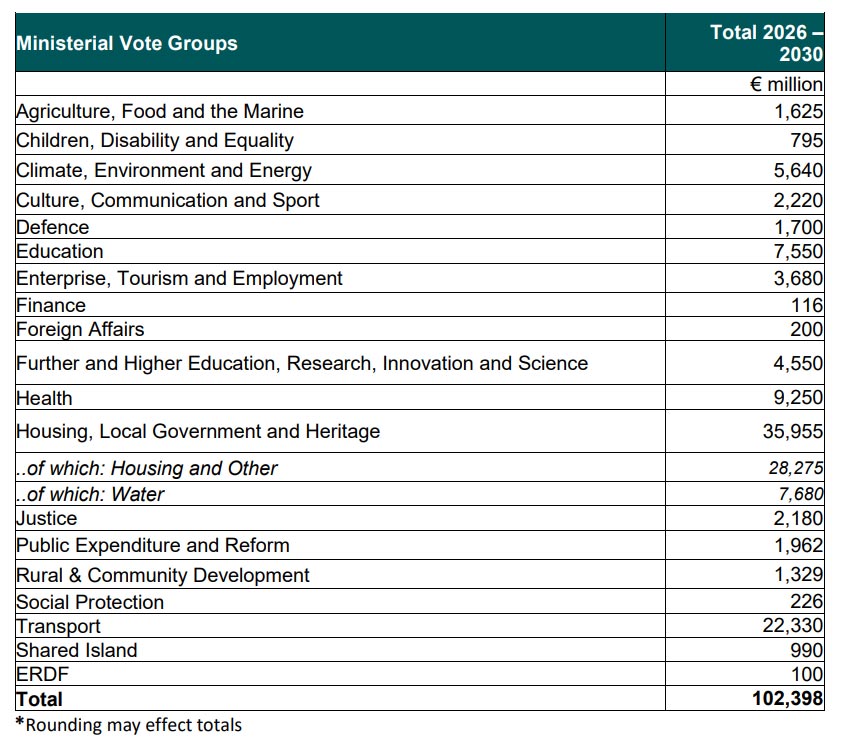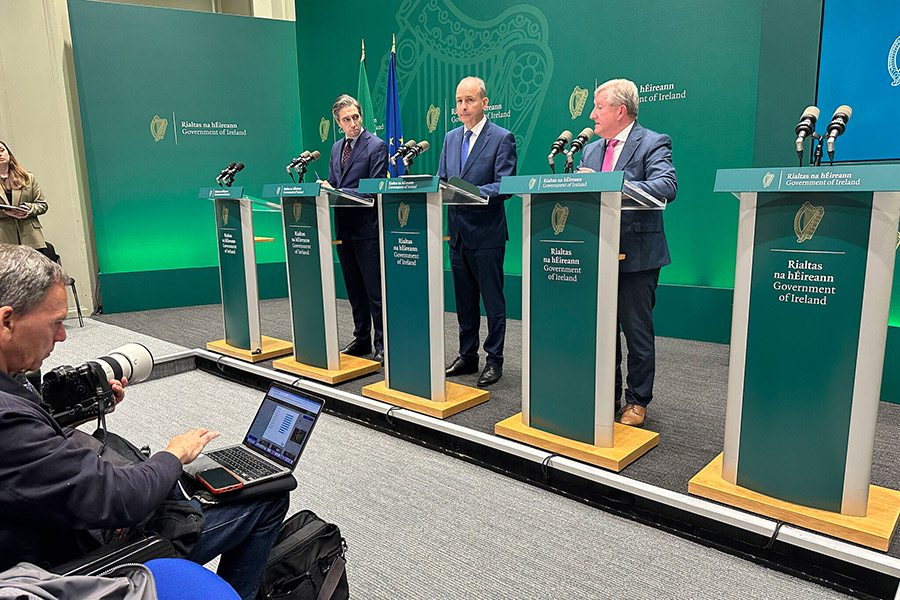The government has committed €275.4bn in capital investment to the end of 2035, including €102.4bn that will be deployed by the end of the decade, as part of the revised National Development Plan.
Beyond headline figures, details of the capital spending plans were scant, and government ministers are expected to announce how they will deploy their budgets in the coming months following consultations with their departments.
The revised NDP includes an additional €34bn to be spent over the next four years after health and housing secured €4bn in government negotiations on Monday evening.
Jack Chambers, minister for public expenditure, announced €30bn over the weekend, including €10bn that has been ring-fenced for for investment in the national grid, water infrastructure and projects such as the Dublin Metrolink.
Of the €10bn, there is equity funding of €3.5bn for the ESB and Eirgird to improve the national grid, €2bn for Uisce Éireann to enable the delivery of 300,000 homes and €0.5bn for other "large-scale projects", and €2bn for the Infrastructure, Climate and Nature Fund for Metrolink and other low-carbon transportation.
The total investment of €275.4bn is in part funded by the €14bn in Apple back taxes and proceeds from the sale of the state's share in AIB, as well as the state's Future Ireland Fund and Infrastructure, Climate and Nature Fund.
Speaking at Government Buildings this afternoon, Taoiseach Micheál Martin said the updated National Development Plan represents the largest investment in economic and social infrastructure in the history of the state.
Additionally, he outlined €24bn for extending public transport, roads, electrification, active travel and greenways, €1bn for research & development activity, and €36bn for housing, equivalent to a third of state capital spending to 2030.
The investment in housing is exclusive of the €12.2bn investment in water and wastewater services.
Martin and Tánaiste Simon Harris both put an emphasis on delivery, respectively pointing to removing barriers to swift delivery of investments and overcoming pinch points on investment.
Additionally, Harris referenced investment in more childcare places, schools, disability services and healthcare.
“By prioritising investment in water, energy, and transport, we are laying the groundwork for 300,000 new homes by 2030," said Harris.
"Quicker approval processes and less red tape will be critical to delivering a plan that will enable the delivery of not just new homes, but more schools and childcare places, and improved disability services and health outcomes.
"This is a whole-of-government effort to ensure that Ireland remains a great place to live, work, and raise a family. Our focus is on delivering for people living in Ireland, now and into the future.”
Martin said: "This NDP Review is a landmark moment for Ireland’s future. With a record €275.4bn in public capital investment, we will deliver the infrastructure that will help us meet the economic and social needs of the Irish people for generations to come.
“This plan is about building homes, connecting communities, and creating opportunities. It reflects our ambition to support a growing population, meet our climate goals, and ensure that every part of Ireland can thrive."
For the period of 2026 to 2030, the largest budgets have been allocated to the housing (€36bn), transport (€22.3bn), health (€9.3bn), education (€7.5bn), climate, environment and energy (€5.6bn) and further and higher education (€4.5bn).

The revised NDP includes €1.7bn for the Defence Forces, marking the largest ever increase in military spending.
The new funding will be used to introduce primary radar systems and sonar equipment as well as new armoured personnel vehicles.
Furthermore, a total of €2.2bn is expected to be allocated to the Department of Justice to fund prison beds, garda stations and other capital projects.
Photo: Simon Harris, Micheál Martin and Seán Canney. (Pic: Eamonn Farrell/© RollingNews.ie)











